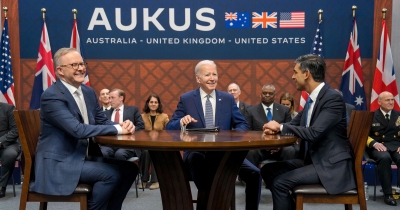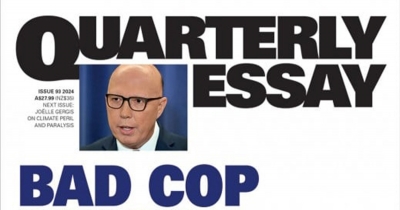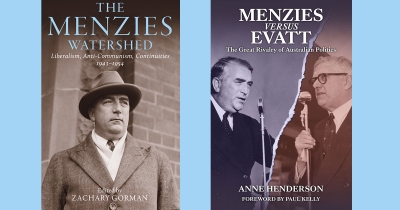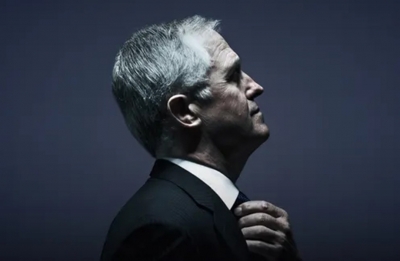Australian Politics
Bill Hayden, the first Queensland policeman to lead a federal political party, wrote of his experiences as a constable – the violence, the squalor, the tragedy – in his autobiography, Hayden (Angus & Robertson, 1996), and concluded: ‘All of these led me to feel a great anger at the injustices some people had to bear.’ At one point, the former governor-general noted that his ‘humanist’ reaction to injustice reflected his background as the son of a father who was an illegal immigrant and a mother who suffered domestic abuse.
... (read more)When the former Labor prime minister Paul Keating appeared at the National Press Club in March 2023 to savage the bipartisan commitment to acquire nuclear-powered submarines under the AUKUS agreement, he did so only days after Anthony Albanese had stood alongside his British counterpart Rishi Sunak and US President Joe Biden in San Diego to announce the ‘optimal pathway’ for the agreement. Fluttering above them were the respective flags of the three nations. In the background lay berthed the USS Missouri, a Virginia class submarine lined with American sailors and festooned with its own bunting. But as Keating noted in typically pungent fashion, on that day ‘there was only one payer: the Australian prime minister … there’s three leaders standing there … [but] only one is paying … our bloke, Albo. The other two, they’ve got the band playing, happy days are here again.’
... (read more)Bad Cop: Peter Dutton’s strongman politics (Quarterly Essay 93) by Lech Blaine
The Journal of Australian Political Economy (JAPE) recently published a special issue to mark the (presumed) halfway point of the Albanese Labor government. There was an editorial and nineteen articles. As you would expect, the verdict was mixed. The most striking thing to me, however, was that the authors had enough material to work with. A similar exercise for the Abbott and Morrison governments would have produced the problem faced by Old Mother Hubbard. The Turnbull government might just have provided her poor doggy with a bone, but one without much meat on it.
... (read more)The Menzies Watershed edited by Zachary Gorman & Menzies versus Evatt by Anne Henderson
War Criminals Welcome: Australia, a Sanctuary for fugitive war criminals since 1945 by Mark Aarons
Trump's Australia: How Trumpism changed Australia and the shocking consequences for us of a second term by Bruce Wolpe
The stumping of Jonny Bairstow reminded me of reaction chains. Bairstow, in case you didn’t waste winter nights watching the Ashes, was the English batsman controversially stumped by Australian wicketkeeper Alex Carey during the second Test at Lord’s. Pandemonium ensued, with the poohbahs of the Marylebone Cricket Club berating the Australian team during the lunch break as they filed through the holiest of holies, the Long Room. The brouhaha led news bulletins around the cricketing world; even the prime ministers of Australia and the Old Enemy weighed in.
... (read more)









